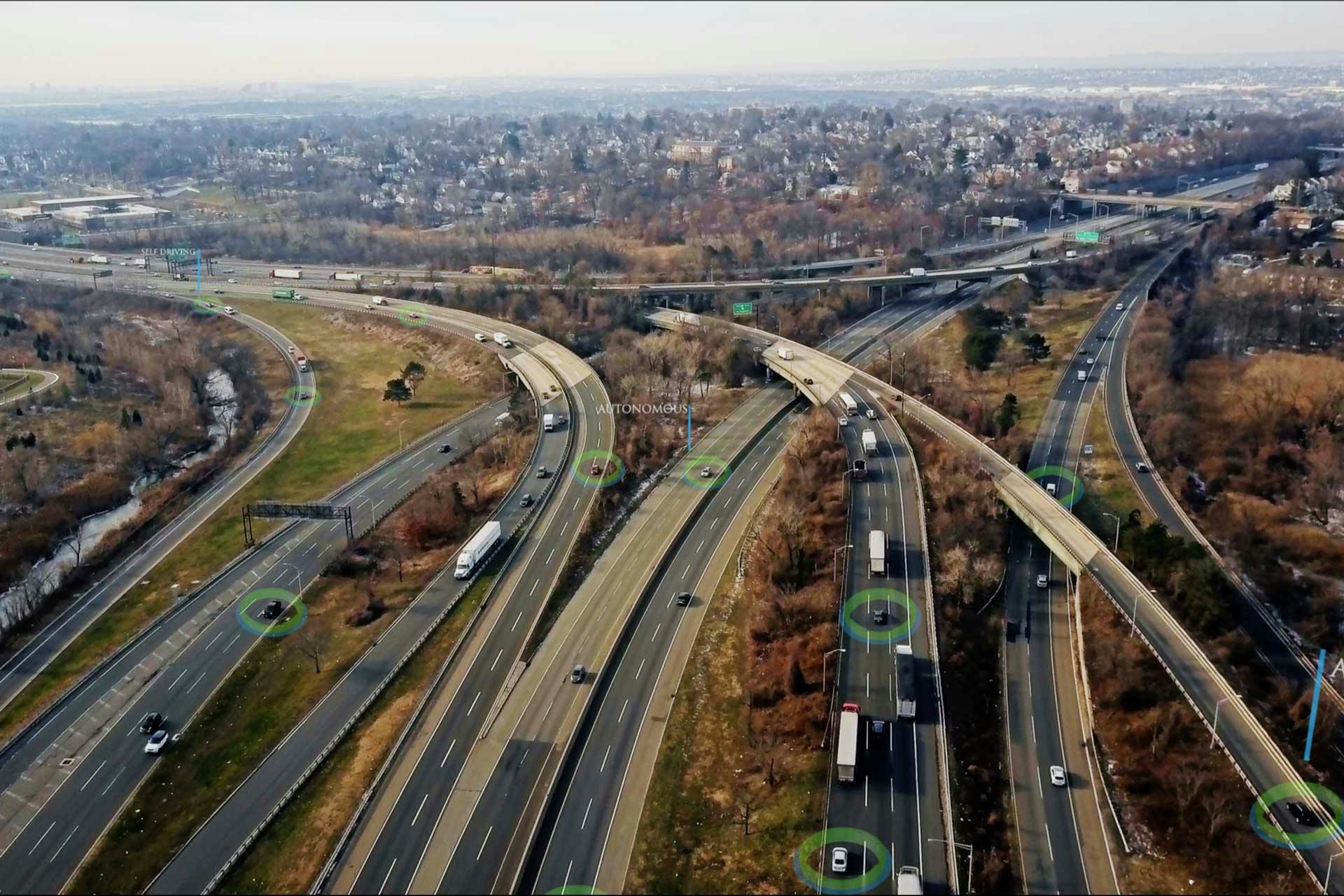
April 19, 2018
#FastForward to the future – and beyond!
A few months ago, we reached out to you in a series of Twitter polls to hear and better understand your expectations in areas related to the future of insurance. Everyone seems to be talking about driverless cars, artificial intelligence, and connected objects, but what do YOU think? Are you ready to welcome them into your daily routine? What do you want, or fear? What do you expect from your insurer? And at AXA, what tangible steps are we taking to meet your new needs?
4 minutes
Autonomous vehicles: Ready to board, but not with your eyes shut
Not a day goes by without the media reporting on driverless cars, whether the topic is tests, their arrival on the road, technological advances, and – more recently, the first accidents caused by artificial intelligence rather than human error.
Our survey has shown us that you are ready to put a robot in the driver’s seat if it will improve your life and also help society (by reducing traffic congestion). However, you are aware that there are risks involved, particularly hacking.
We, too, are convinced that autonomous vehicles offer benefits, such as improved road safety, less urban traffic and a reduction of the environmental impact of transportation.
Bettina Zahnd
Head of Accident Research & Prevention at AXA in Switzerland
Today, people are still the cause of nearly 90% of accidents. I firmly believe that with technological developments, the use of more sophisticated sensors and the finetuning of existing systems, automated vehicles will significantly enhance safety.
However, like you, we know we have a long way to go before we can climb into a car coming straight from a sci-fi movie with total peace of mind.
A lot of questions remain to be answered, especially from a legal standpoint. Who is responsible in the event of an accident? Who should be insured: the passenger or the manufacturer? Is it possible for traditional and self-driving cars to share the road harmoniously? How can we protect ourselves from hacking?
Major changes are looming for insurers. As AXA CEO Thomas Buberl recently explained to the Financial Times:

Thomas Buberl
Chief Executive Officer of AXA
Take autonomous vehicles. Today, a car [insurance] contract is your personal contract… Tomorrow, it will be a manufacturer’s product liability, maybe focused on cyber risks.
We are working to be ready for this revolution and have been making steady progress for several years. Our business is to manage risks, but also to help our customers better prevent them. And driverless cars are introducing new risks, to do with ethics, hacking, bugs, and more. Each year, we hold public crash tests Switzerland, so we can better understand the risks and communicate them, too:
In the United Kingdom, AXA is a member of five different projets such as Flourish, a consortium of private- and public-sector players and scientific experts whose aim is to test connected and autonomous vehicles in real-world conditions to optimise their implementation.
David Williams
Technical Director, AXA UK
Connectivity is fundamental to the evolution of the transport ecosystem but brings with it new and emerging risks, such as cyber security and data protection.
The fact is the emerging CAV (Connected & Autonomous Vehicles) ecosystem is bigger than any one industry. If we genuinely believe in the societal benefits CAVs can bring then it is incumbent on motor manufacturers, infrastructure providers and transport network operators to standardise and allow access to crucial data. That way, the relevant third parties such as insurers and the emergency services will be able to play their part in the event of an accident.
Artificial intelligence and connected objects: No problemo? Not yet...
Simultaneously offering tremendous opportunities for innovation and dangerous threats to confidentiality and IT security, artificial intelligence and connected objects prompt fascination but also caution.
This was clear from survey responses. More than 60% of respondents said they were ready to give a chance to artificial intelligence and connected objects if it could improve their lives. But thumbs down on giving up control over their holidays, and watch out for personal data breaches!
Although artificial intelligence can solve many problems and improve the services we provide by automating certain processes, our primary concern is to anticipate technological, legal, and societal disruptions and support the responsible and ethical development of AI so that people can benefit from all its advantages. That's why several researchers are supported by the AXA Research Fund. Among them is Dr. Gopal Ramchurn, who is building a methodology for responsible artificial intelligence, with a focus on two key application areas : the use of drones for disaster response and the use of IoT systems for energy conservation in smart homes.
“Building on a number of existing results we already have on these two kinds of AI systems, we’re going to try and expose methods that allow these AI systems to make sense of what is going on around them and to take decisions we can trust,” Dr. Ramchurn explains.
Since we want to be a trusted partner for customers, we have launched several projects to better protect data. Our work includes the creation of dedicated teams, participation in think tanks like Impact IA launched by Microsoft, as well as Binding Corporate Rules, whch are internationally recognized standard in data protection. The CNIL, France's data privacy watchdog, and 15 other European data protection authorities have approved these rules (Click here to learn more).
At AXA, our topmost goal for innovation is to always offer our customers the protection and services they need. Not one of our projects begins without first listening to our customers.
The #FastForward campaign ran in December 2017. It was a series of five Twitter polls promoted from the AXA Group’s Twitter account. The survey sample is not representative of the parent population (2 million people aged 25 and up, residing in Germany, Spain, the United Kingdom, Ireland, Mexico, and Italy, having tweeted on a surveyed topic: driverless cars, artificial intelligence, connected objects, etc.). The campaign generated a total of 52,880 votes and more than 400 comments, allowing us pinpoint consumer expectations and concerns on topics related to the insurance of the future.



